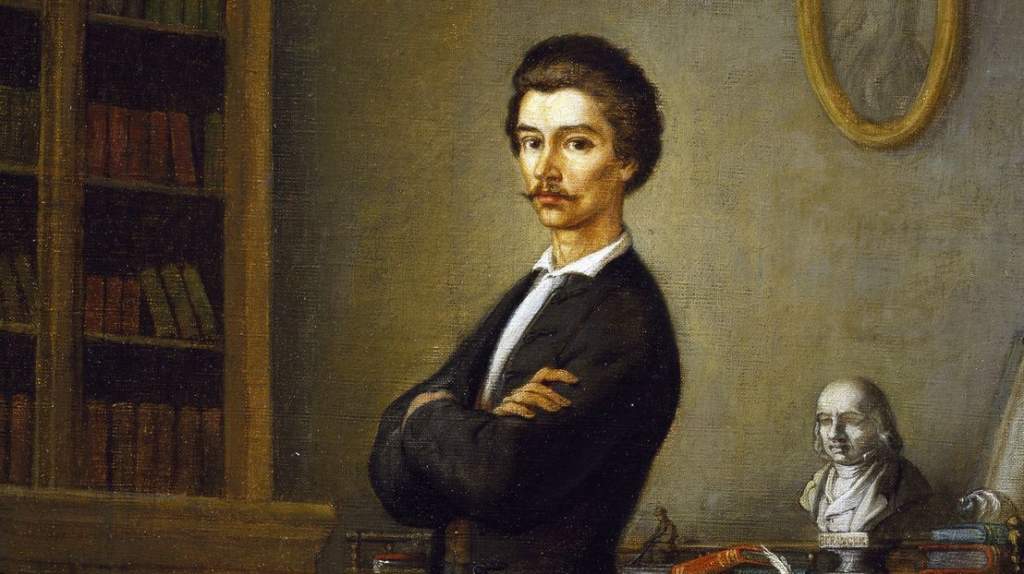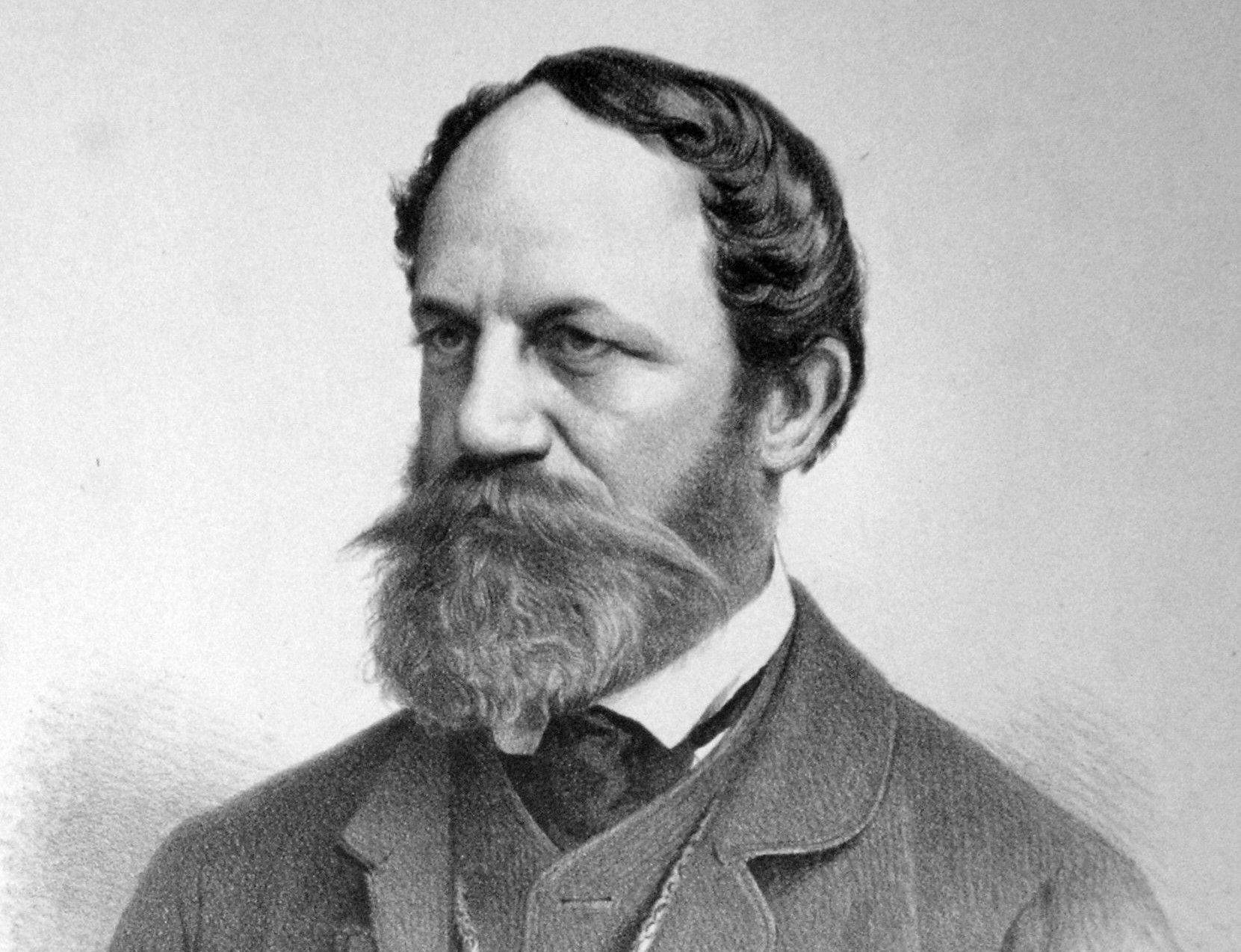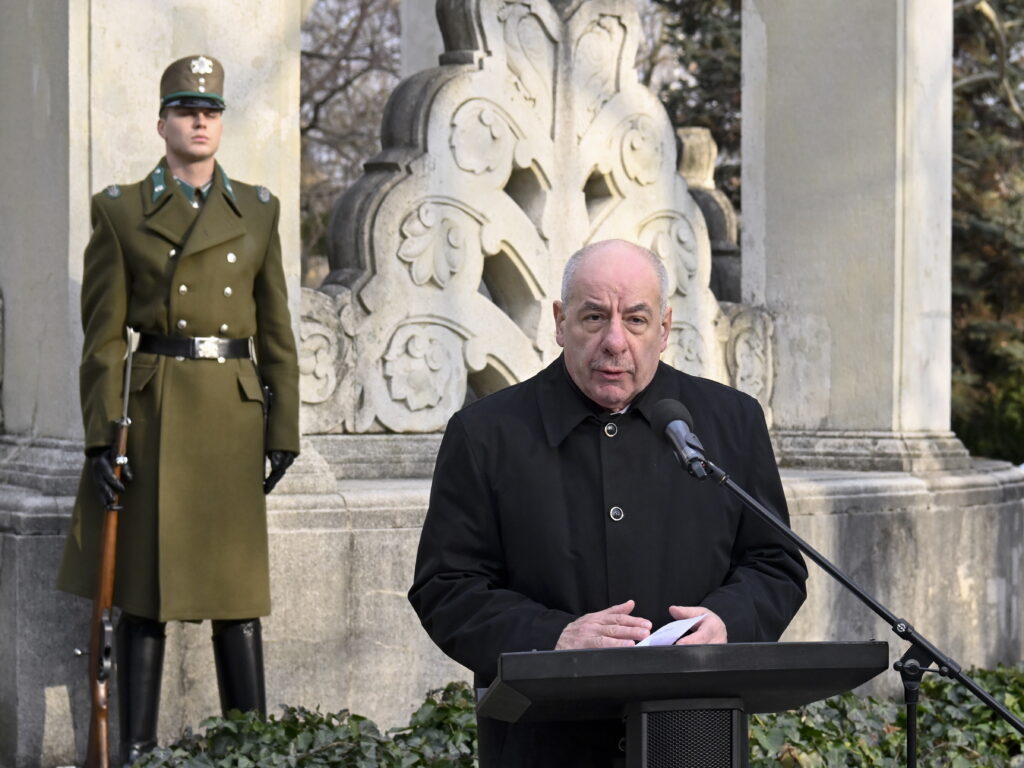
Sándor Petőfi, a key figure of the Hungarian Revolution of 1848, is considered Hungary’s national poet.Continue reading

The Ministry of Culture and Innovation launched a year-long series of programs on February 18, the bicentenary of the birth of Mór Jókai (1825-1904), a Hungarian novelist, dramatist, and revolutionary. The aim of the “Jókai 200” cultural year is to show that the writer’s rich oeuvre is also meant for the people of today. “The values that Mór Jókai stood for throughout his life are particularly relevant today: standing up for the country, its culture and sovereignty, and for national unity,” the ministry wrote.
“The cult of Jókai, still flourishing in the Carpathian Basin, is nourished by the writer’s oeuvre, which includes more than a hundred novels, a thousand short stories and thousands of newspaper articles, by the classic Hungarian films and stage plays based on his novels, and by the love of the Hungarian people, which has been alive for centuries,” the ministry wrote in its statement. The ministry therefore considers the bicentenary of the birth of the great representative of Hungarian romantic prose and the celebration of his life’s work to be of particular importance in the framework of the “Jókai 200” cultural year.
The series of programs covering the entire Carpathian Basin will include several exhibitions, scientific conferences, films, and performing arts productions on Jókai’s life and work.
As part of the series of events, the Hungarian National Museum has made a digitized selection of Jókai’s legacy, publicly available from Tuesday. The collection includes manuscripts, photographs, works of art, books, magazines, color plates, and artifacts of artistic value. “It is not only Jókai’s biography and novels that will be brought to the public, but also his incredibly wide-ranging public, editorial, and scientific activities. The era itself will be brought to life as Jókai’s life spanned almost the entire 19th century,” the museum’s statement said.
The Hungarian National Bank (MNB) also paid tribute to the writer on the occasion of the anniversary, issuing a silver commemorative coin with a value of 20,000 forints and a non-ferrous collector coin with a value of 3,000 forints on Tuesday.
The “Jókai Year” was opened by Balázs Hankó, Minister of Culture and Innovation, on Tuesday in Balatonfüred, also known as the summer resort of Mór Jókai. Jókai was a supporter of a sovereign, self-reliant, proud and strong Hungary, and that is what he worked for, the minister stressed, adding that he was “a patriot, one of the best.” This year, the Ministry of Culture and Innovation will bring the cult of Jókai to every Hungarian. Exhibitions, festivals, prose theater performances, and musicals will commemorate the great novelist and his works.
“Academic conferences and publications will analyze his impact and summarize his values and spirit. Through the tools of digital culture, the adventures, heroes, intrigues, battles, and triumphs he put on paper are brought to life,” the minister said.
At a commemoration event organized by the National Heritage Institute, the President of Hungary stressed that “Mór Jókai was a true Hungarian, a man of both talent and tireless work, a man who fought for Hungarian freedom and respected the freedom of others.” Tamás Sulyok added that Mór Jókai was one of the March Youth, “the signatory of our legal demands, who was one of the main protagonists of the March 15, 1848 revolution and one of the reversers of the Hungarian destiny.”
He was a prominent figure in Hungarian public life, a member of parliament, an opinion-forming thinker, editor, and public writer, whose words often attracted more attention than the statements of leading politicians. Jókai is also a model of a respectable citizen, a European mind who appreciates cultures, respects peoples, speaks languages, and is educated in Europe,”
the head of state emphasized.

Tamás Sulyok. Photo: MTI/Máthé Zoltán
He added that Jókai showed what a nation could be, what it could be capable of, what it could achieve: “He did not conceal reality, but revealed the possibilities. He created ideals, set examples, and told stories incessantly.”
“For him, language and storytelling were the real weapons, and with them he could win,” said Sulyok, noting that
Mór Jókai and his work are an indelible part of Hungarian culture: “if we read them, we will not find dead letters, but a living heritage.”
As he said, Mór Jókai “was more than a fantastic writer, more than the creator of the greatest Hungarian literary oeuvre, he was also more than a unique cultural shaper. He was more than a revolutionary ready to sacrifice for his country, or a respected member of the Hungarian Parliament. He was more than one of the greats of our past. Mór Jókai was all of these things, but more than that. A true Hungarian. And in this true Hungarian, there was both talent and tireless work, the revolutionary and the thoughtful politician, the man who fought for Hungarian freedom and respected the freedom of others at the same time.”
Via MTI, sandorpalota.hu; Featured image: Wikipedia